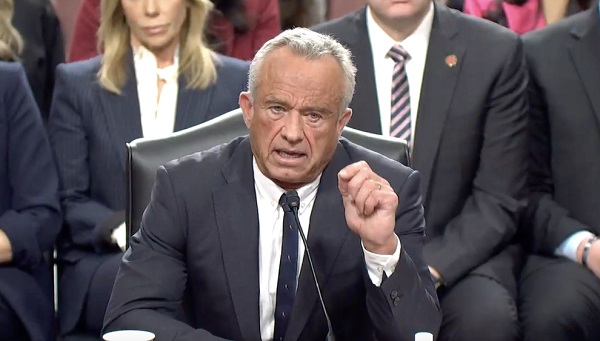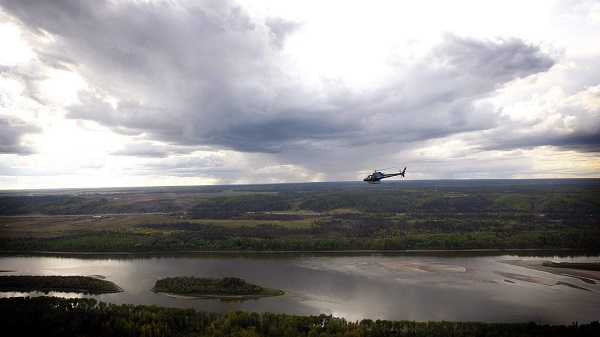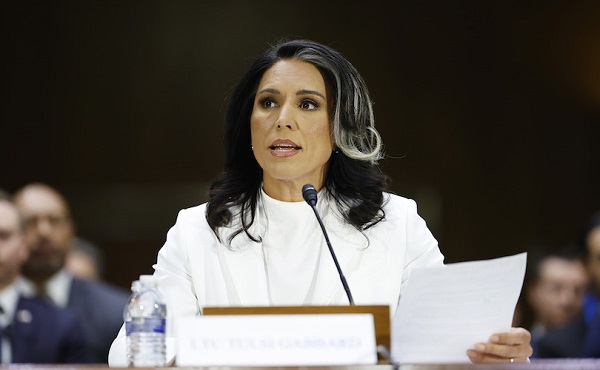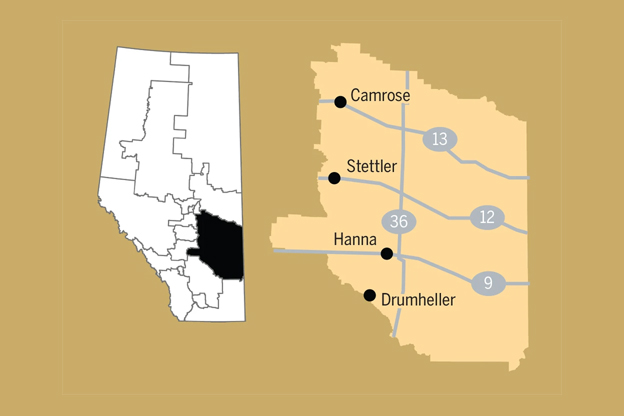Alberta
Kenney’s Leadership Review is a Circus – Red Deer South UCP MLA Jason Stephan

This opinion editorial submitted by Red Deer South MLA Jason Stephan
Alberta’s legislature begins with a daily prayer asking leaders to “never lead the province wrongly through love of power”.
Our political system does require reform, concentrating too much power in the hands of the Premier.
Other than elections, leadership reviews are vital checks and balances against autocratic ambitions. It is a serious matter to meddle with the few checks and balances for the public that remain.
The UCP leadership review has become a spectacle and a circus.
Fundamentally moving goalposts, after deadlines, destroys trust and integrity of process. It provides opportunities to cheat.
The party executive first chose a process that suppressed member participation. Many grassroots members and CA boards raised concerns about this, which the executive ignored and rejected.
Many are concluding the leader was losing his vote, under his preferred rules, so he metaphorically grabbed the ball and ran away.
Many are concluding these fundamental changes in process, after deadlines, seek to manipulate the outcome of the vote.
Many do not trust this new process has not, or will not, be rigged.
Last week I stood in the legislature and said:
“Some politicians label those who agree with them as the mainstream; while those who disagree with them as fringe minorities, extremists, or threats undermining stability.”
Kenney is doing what he condemned Trudeau for doing.
“Some politicians say of course we can have unity – if only you would agree with me!
That is not unity. That is ridiculous.
We are governed by laws, not by individuals, and our paramount loyalties are to principles, not office holders.”
Kenney says those who vote to change him as leader undermine unity and stability.
That is self-serving. “Stability” was also used by Trudeau as a self-serving excuse to justify his pact with the NDP.
Some politicians say vote for Kenney or there will be divisions in the party!
They are too late – divisions are upon us and sometimes this leader has increased, rather than decreased, them.
We have seen too much dividing, too much labelling, sometimes change in leadership is required to heal, to unite and move forward.
Some politicians say vote for Kenney, we cannot risk the NDP getting back in!
Albertans are tired of politicians using fear as a tool.
Conservative policies, regardless of the leader, increase economic prosperity. With oil over $100, a conservative government budget would be balanced, with or without Kenney.
The ends do not justify the means and so this leader does not enjoy the trust of most Albertans. This recent development only amplifies and reinforces those feelings.
Kenney is less popular than the party. Is it in the best interests of our party, our province, to go into an election hoping to win, in spite of the leader? Isn’t that too much to risk, as we cannot risk the NDP getting back in!
Some politicians say vote for Kenney, we need him to get Alberta a fair deal! What has he accomplished so far? If he is not fair, where his moral authority to demand Ottawa to be fair?
With Trudeau forming an axis with the NDP, we do need to prepare ourselves for the real possibility of further hostile, targeted attacks that harm Alberta businesses and families.
The Premier of Alberta needs to be respected and trusted by Albertans to fearlessly defend our interests. The current Premier does not have that.
Some politicians say vote for Kenney or you get someone worse!
More fear. To assume that any one person is the only one who could be the leader of our party is a false assumption.
There are many honest and principled Alberta men and women who would be great leaders of our party.
Politics should not be a career. It is a special opportunity to serve and having contributed one’s experiences and talents, one should step aside and allow others to do the same.
The Premier’s leadership, and now his unprecedented efforts to full out campaign and control the results of his own review have become a circus, a distraction, and a liability to the province and the party.
Confidence is lost, and for the good of the party, for the province, the Premier should be gracious, resign and support a positive leadership race for a new leader to unite the party and the province.
“Dividing and labelling others only produces contention and destroys trust.
That is not leadership.”
This is true.
“Great leaders lead in love and inspire the best in those they serve.”
This is what we need.
Alberta
Alberta’s move to ‘activity-based funding’ will improve health care despite naysayer claims

From the Fraser Institute
After the Smith government recently announced its shift to a new approach for funding hospitals, known as “activity-based funding” (ABF), defenders of the status quo in Alberta were quick to argue ABF will not improve health care in the province. Their claims are simply incorrect. In reality, based on the experiences of other better-performing universal health-care systems, ABF will help reduce wait times for Alberta patients and provide better value-for-money for taxpayers.
First, it’s important to understand Alberta is not breaking new ground with this approach. Other developed countries shifted to the ABF model starting in the early 1990s.
Indeed, after years of paying their hospitals a lump-sum annual budget for surgical care (like Alberta currently), other countries with universal health care recognized this form of payment encouraged hospitals to deliver fewer services by turning each patient into a cost to be minimized. The shift to ABF, which compensates hospitals for the actual services they provide, flips the script—hospitals in these countries now see patients as a source of revenue.
In fact, in many universal health-care countries, these reforms began so long ago that some are now on their second or even third generation of ABF, incorporating further innovations to encourage an even greater focus on quality.
For example, in Sweden in the early 1990s, counties that embraced ABF enjoyed a potential cost savings of 13 per cent over non-reforming counties that stuck with budgets. In Stockholm, one study measured an 11 per cent increase in hospital activity overall alongside a 1 per cent decrease in costs following the introduction of ABF. Moreover, according to the study, ABF did not reduce access for older patients or patients with more complex conditions. In England, the shift to ABF in the early to mid-2000s helped increase hospital activity and reduce the cost of care per patient, also without negatively affecting quality of care.
Multi-national studies on the shift to ABF have repeatedly shown increases in the volume of care provided, reduced costs per admission, and (perhaps most importantly for Albertans) shorter wait times. Studies have also shown ABF may lead to improved quality and access to advanced medical technology for patients.
Clearly, the naysayers who claim that ABF is some sort of new or untested reform, or that Albertans are heading down an unknown path with unmanageable and unexpected risks, are at the very least uninformed.
And what of those theoretical drawbacks?
Some critics claim that ABF may encourage faster discharges of patients to reduce costs. But they fail to note this theoretical drawback also exists under the current system where discharging higher-cost patients earlier can reduce the drain on hospital budgets. And crucially, other countries have implemented policies to prevent these types of theoretical drawbacks under ABF, which can inform Alberta’s approach from the start.
Critics also argue that competition between private clinics, or even between clinics and hospitals, is somehow a bad thing. But all of the developed world’s top performing universal health-care systems, with the best outcomes and shortest wait times, include a blend of both public and private care. No one has done it with the naysayers’ fixation on government provision.
And finally, some critics claim that, under ABF, private clinics will simply focus on less-complex procedures for less-complex patients to achieve greater profit, leaving public hospitals to perform more complex and thus costly surgeries. But in fact, private clinics alleviate pressure on the public system, allowing hospitals to dedicate their sophisticated resources to complex cases. To be sure, the government must ensure that complex procedures—no matter where they are performed—must always receive appropriate levels of funding and similarly that less-complex procedures are also appropriately funded. But again, the vast and lengthy experience with ABF in other universal health-care countries can help inform Alberta’s approach, which could then serve as an example for other provinces.
Alberta’s health-care system simply does not deliver for patients, with its painfully long wait times and poor access to physicians and services—despite its massive price tag. With its planned shift to activity-based funding, the province has embarked on a path to better health care, despite any false claims from the naysayers. Now it’s crucial for the Smith government to learn from the experiences of others and get this critical reform right.
Alberta
Charges laid in record cocaine seizure

From ALERT – The Alberta Law Enforcement Response Team
Five suspects have now been charged in relation to a major cocaine seizure that took place in Edmonton last year. In April 2024 $3 million worth of cocaine and other drugs was seized.
ALERT Edmonton’s organized crime team, in consultation with Alberta Crown Prosecution Service, was able to arrest and lay charges against five suspects on April 21, 2025. The charges are wide-ranging and include participation in the activities of a criminal organization, conspiracy to traffic drugs, drug trafficking, and money laundering.
“Following last year’s drug seizure, our investigative team was able to conduct a thorough investigation and identify the suspects responsible. We now have significant charges put before the courts in the hopes of holding this organized crime group accountable,” said Insp. Angela Kemp, ALERT Edmonton.
The drug seizure was initially announced by ALERT on May 6, 2024. At 27 kilograms of cocaine, it was highlighted as the largest cocaine seizure by ALERT in Edmonton.
The seizure took place on April 30, 2024 when a search warrant was executed at a west Edmonton home in the Lewis Estates neighbourhood.
ALERT alleges that the suspects are part of an organized crime group that was involved in drug trafficking in the Edmonton region, and had also supplied drugs to Grande Prairie and Saskatchewan. ALERT received assistance on the investigation by the Edmonton Police Service and RCMP Federal Policing Northwest Region.
The following suspects were charged:
- Jeffrey Vil, a 45-year-old from Edmonton, is charged with participation in activities of a criminal organization, commission of an offence for a criminal organization, conspiracy to traffic drugs, conspiracy to possess drugs for the purpose of trafficking, possession of drugs for the purpose of trafficking, laundering proceeds of crime, possession of proceeds of crime, and possession of a prohibited device.
- Tommy Szeto, a 35-year-old from Edmonton, is charged with participation in activities of a criminal organization, commission of an offence for a criminal organization, conspiracy to traffic drugs, conspiracy to possess drugs for the purpose of trafficking, possession of drugs for the purpose of trafficking, and laundering proceeds of crime.
- Tayler Fraser, a 27-year-old from Edmonton, is charged with is charged with participation in activities of a criminal organization, commission of an offence for a criminal organization, conspiracy to traffic drugs, and conspiracy to possess drugs for the purpose of trafficking.
- Christian Barwise, a 35-year-old from Edmonton, is charged with drug trafficking.
- Adrian De Guzman, a 27-year-old from Edmonton, is charged with drug trafficking.
The suspects were released from custody and are scheduled to appear in court on May 22, 2025.
Members of the public who suspect drug or gang activity in their community can call local police, or contact Crime Stoppers at 1-800-222-TIPS (8477). Crime Stoppers is always anonymous.
ALERT was established and is funded by the Alberta Government and is a compilation of the province’s most sophisticated law enforcement resources committed to tackling serious and organized crime.
-

 COVID-192 days ago
COVID-192 days agoStudy finds nearly half of ‘COVID deaths’ had no link to virus
-

 Autism1 day ago
Autism1 day agoNIH, CMS partner on autism research
-

 Alberta2 days ago
Alberta2 days agoEnergy projects occupy less than three per cent of Alberta’s oil sands region, report says
-

 Energy2 days ago
Energy2 days agoOil tankers in Vancouver are loading plenty, but they can load even more
-

 Alberta2 days ago
Alberta2 days agoCharges laid in record cocaine seizure
-

 2025 Federal Election1 day ago
2025 Federal Election1 day agoCarney says Liberals won’t make voting pact with NDP
-

 Energy2 days ago
Energy2 days agoCarney’s energy superpower rhetoric falls flat without policy certainty
-

 Business1 day ago
Business1 day agoEPA to shut down “Energy Star” program







